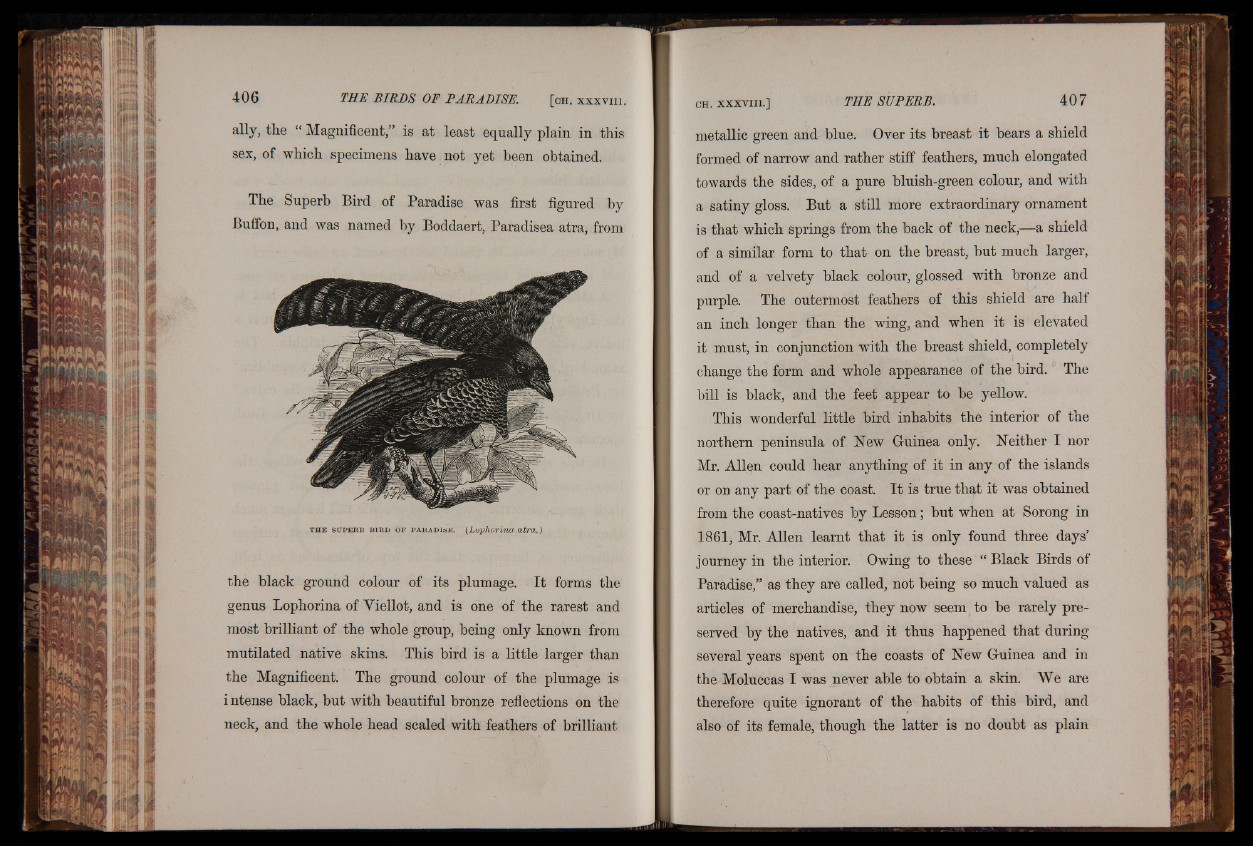
ally, the “ Magnificent,” is at least equally plain in this
sex, of which specimens have not yet been obtained.
The Superb Bird of Paradise was first figured by
Buffon, and was named by Boddaert, Paradisea atra, from
t h e s u p e r b b ir d o f p a r a d is e . (Lophor ina.atra.)
the black ground colour of its plumage. I t forms the
genus Lophorina of Yiellot, and is one of the rarest and
most brilliant of the whole group, being only known from
mutilated native skins. This bird is a little larger than
the Magnificent. The ground colour of the plumage is
i ntense black, but with beautiful bronze reflections on the
neck, and the whole head scaled with feathers of brilliant
metallic green and blue. Over its breast it bears a shield
formed of narrow and rather stiff feathers, much elongated
towards the sides, of a pure bluish-green colour, and with
a satiny gloss. But a still more extraordinary ornament
is that which springs from the back of the neck,—a shield
of a similar form to that on the breast, but much larger,
and of a velvety black colour, glossed with bronze and
purple. The outermost feathers of this shield are half
an inch longer than the wing, and when it is elevated
it must, in conjunction with the breast shield, completely
change the form and whole appearance of the bird. The
bill is black, and the feet appear to be yellow.
This wonderful little bird inhabits the interior of the
northern peninsula of New Guinea only. Neither I nor
Mr. Allen could hear anything of it in any of the islands
or on any part of the coast. I t is true that it was obtained
from the coast-natives by Lesson; but when at Sorong in
1861, Mr. Allen learnt that it is only found three days’
journey in the interior. Owing to these “ Black Birds of
Paradise,” as they are called, not being so much valued as
articles of merchandise, they now seem to be rarely preserved
by the natives, and it thus happened that during
several years spent on the coasts of New Guinea and in
the Moluccas I was neyer able to obtain a skin. We are
therefore quite ignorant of the habits of this bird, and
also of its female, though the latter is no doubt as plain